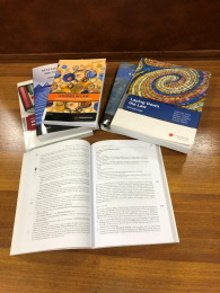Staff at the National Library of Australia are not able to provide legal advice.
Every effort is made to provide accurate and relevant information, but this does not constitute qualified legal advice.

Disclaimer
Staff at the National Library of Australia are not able to provide legal advice.
Every effort is made to provide accurate and relevant information, but this does not constitute qualified legal advice.

In Australia, the law is made up of two main components:
Legislation, also known as statutes or Acts of Parliament, is the written law made by Parliament. In any year the Parliament may vote on new Acts of Parliament to create new laws or vote to change, or amend, older Acts of Parliament.
Consequently, legislation often changes over time and is occasionally repealed altogether. This is done by amending legislation. An amending Act is created by Parliament, just like any other Act.
‘Point-in-time’ legislation allows you to access a version of the law as it appeared at a particular point in the past.
If you are researching a legal issue from ten years ago you will need to use the legislation as it was ten years ago, not the legislation as it is today as it may have been amended.
It will be necessary to track changes to the legislation in order to reconstruct its history to find the relevant ‘point-in-time’ version of the legislation for the issue you are researching.
Both federal (Australian) and state Parliaments make laws. Laws made by parliament are called legislation, statutes or acts. The legislative process is similar in most Australian jurisdictions but varies slightly from state to state, and in the territories.
Most Australian Parliaments have two chambers, an upper house and lower house. In the Commonwealth Parliament these are called the Senate (upper house) and House of Representatives (lower house).
Most legislation can originate in either house, with some exceptions.
Broadly, legislation is created in the following way:
Further information can be found on the Parliament of Australia website:
Commonwealth, state/territory, or local?
Before you begin your research, it’s important to establish whether the legislation you are looking for is a Commonwealth Act, a state/territory Act, or a local government by-law.
Under Australia’s Constitution, the federal Parliament can make laws only on certain matters. These include: international and interstate trade; foreign affairs; defence; immigration; taxation; banking; insurance; marriage and divorce; currency and weights and measures; post and telecommunications; and invalid and old age pensions.
The Australian states and territories retain legislative powers over areas such as local government, roads, hospitals, schools, property and wills.
However, over time the Commonwealth has crossed into areas that were previously the concern of the states.
If the Act you are searching for has a distinctive title, you can try searching for it on a free site such as AustLii. Be aware that entering frequently used words will result in a very large list of Acts.
Alternatively, try one of the printed subject indexes for legislation such as Wicks subject index to Commonwealth legislation.